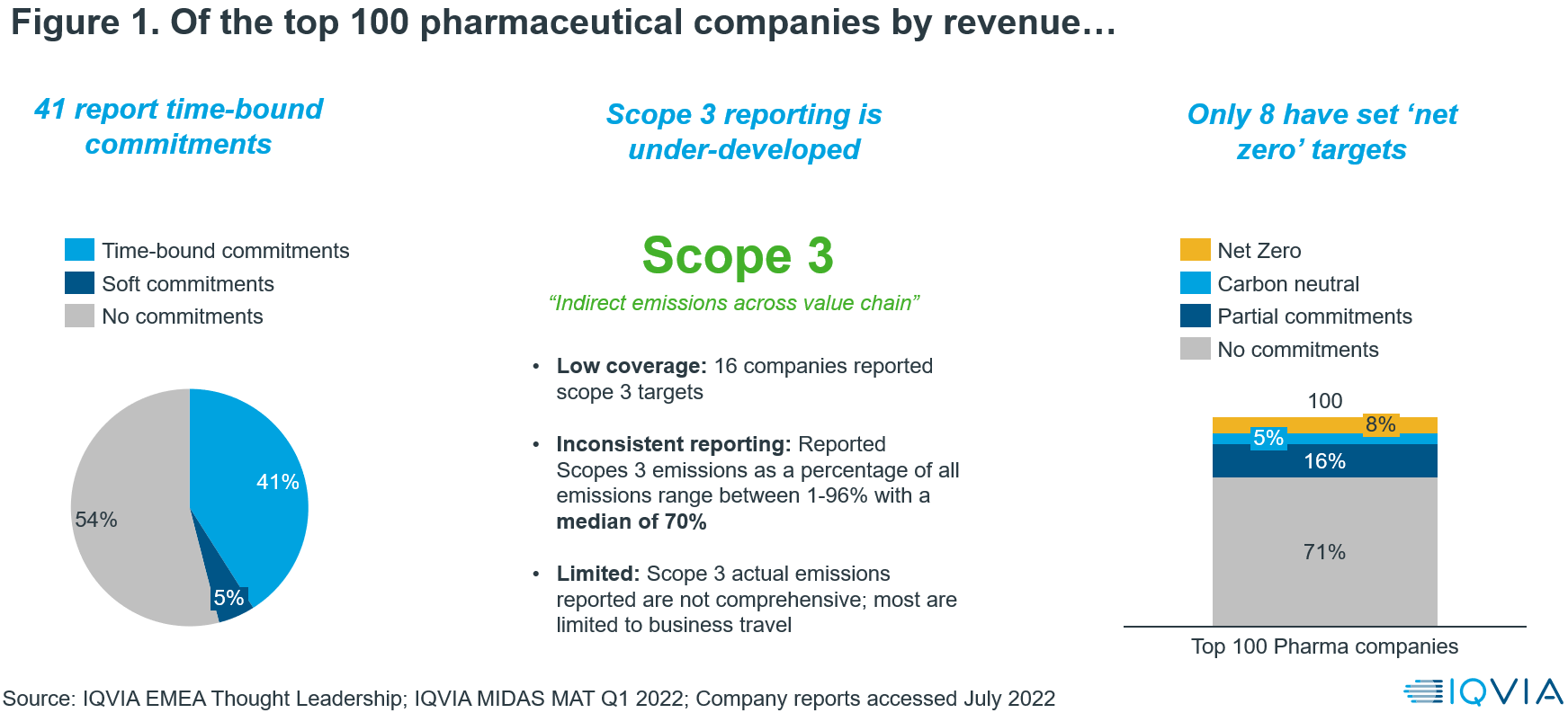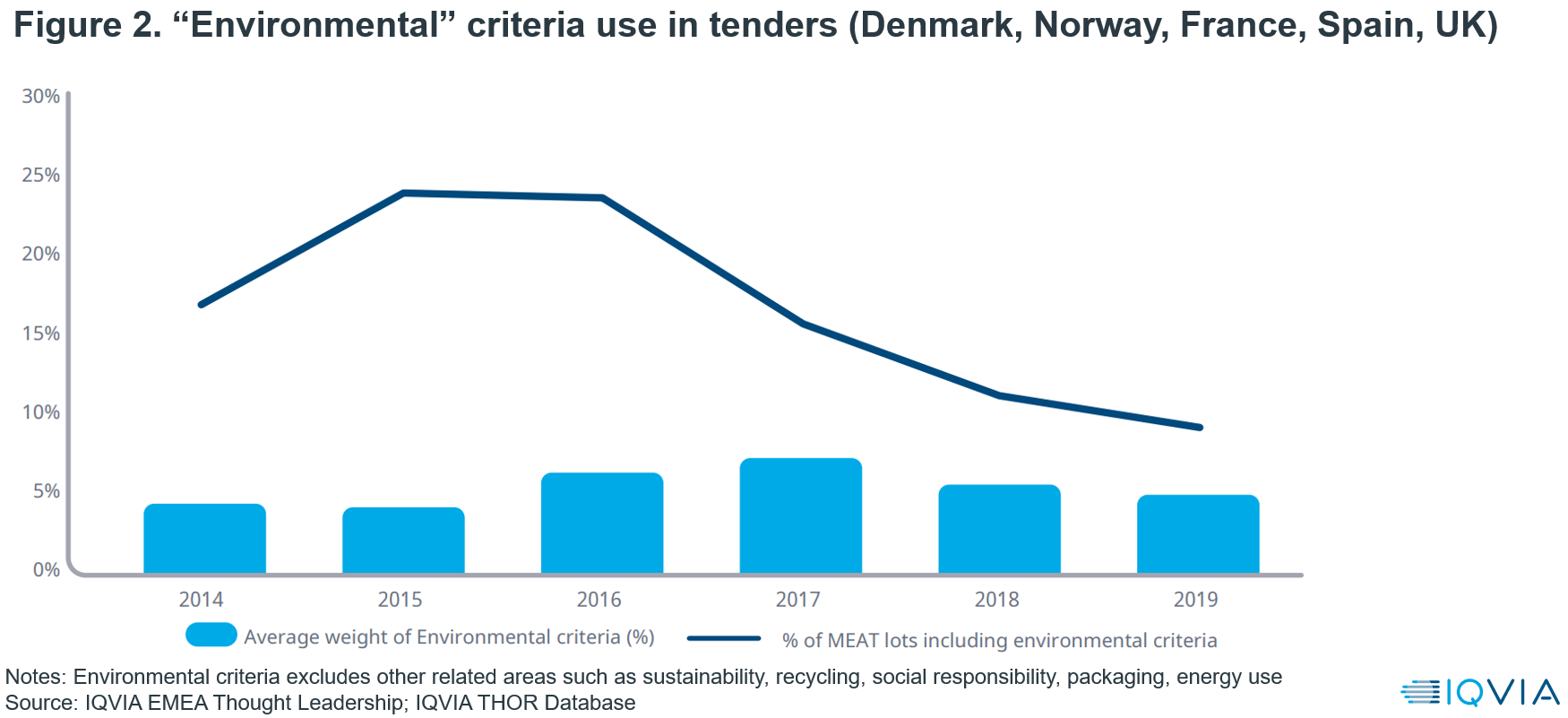It’s time get real with healthcare's commitment to net zero

Every fraction of a degree matters
COP27 is in full swing and world leaders are contending with the fact that we will likely not meet the Paris Agreement’s 1.5°C target. The reality is that we will need to focus on limiting a temperature rise wherever possible and that every fraction of a degree has a real and major consequence on our global environment.
The increasing effects of severe weather events and rising sea levels will affect humanity faster than we can adapt, and this will have grave consequences for population health. It is only right that healthcare takes a strong stance in reducing the impact of climate change.
Healthcare’s contribution to the world’s carbon footprint is significant in its own right and is estimated at 4.4% of global emissions. As recent studies from the UK and France have shown, medicines are a large component of a health system’s emissions, reported at 25% and 33%, respectively. It stands to reason that reducing this sizeable proportion will fall squarely on the shoulders of the pharmaceutical industry.
Taking charge of pharma’s emissions
The narrative has moved on from goal-setting to the implementation of tangible plans. This week, the UN’s “high-level expert group” recommended using regulation instead of voluntary arrangements for businesses, cracking down on greenwashing and implementing net zero pathways.
Net zero is defined as reducing a company’s greenhouse gas emissions as much as possible and offsetting the rest. It extends further than carbon neutrality commitments, as these can be limited in scope or use a large amount of offsetting, which in itself has stirred up controversy.
It is now time to get real on how the pharmaceutical industry can implement a dependable path to decarbonisation before it is forced to do so; playing catch-up is always more expensive than preparedness.
However, although fast moving in innovative product development, the pharmaceutical industry can be slow to adopt other new measures, and a confounding issue with environmental sustainability is that there simply isn’t the existing body of knowledge and data to understand the current situation.
A critical component of gathering this data is from company-reported emissions, and it is here where we can approach the task of quantifying the pharmaceutical industry’s progress. Companies will report their emissions in three scopes: Scope 1 are all direct emissions from activities under the company’s control, Scope 2 are indirect emissions from purchased energy, and Scope 3 are all other indirect emissions from sources outside a company’s control.
IQVIA examined the top 100 companies by global sales revenue (IQVIA MIDAS) and extracted data on commitments and progress (Figure 1). Here is what was found:
- Less than half of top 100 companies have reported time-bound commitments. 41 companies reported commitments, although a larger proportion (n=52) began reporting actual emissions.
- Scope 3 reporting is under-developed. Only 16 companies had reported Scope 3 targets, but more had begun reporting actual emissions (n=31). Further analysis on the latter shows that most of the data is on business travel alone, with a minority of four companies attempting a comprehensive Scope 3 estimate.
- Only eight companies had set net zero targets across their value chain. These goals are generally set to complete between 2040 and 2050. A larger proportion of companies (n= 29) had a partial commitment to carbon neutrality, mostly confined to Scopes 1 and 2.

Net zero is not zero cost
The path to net zero will take time to establish and the first step is to get a clearer understanding of where emissions are generated. Currently, we do not have the data to break down the pharmaceutical industry’s emissions by function and, except for some exceptions, we also cannot identify individual products where progress can be made rapidly. Company reporting is an important step in providing these metrics, and greater coverage should be encouraged.
The UN’s high-level expert group also noted that greenwashing must be addressed, and integrity returned to corporations through credible pathways to net zero. Again, it is here that generating data, - for example, through conducting drug lifecycle analyses - will be crucial in order to separate genuine from negligible action.
Health systems must be engaged as the regulators, payers, and ultimately the beneficiaries of a reduced carbon footprint. This doesn’t come for free, and here we encounter the inherent dilemma, where priorities to reduce our carbon footprint confront commitments to reduce the cost of medicines. Net zero has cost implications for health systems that they must be up-front in addressing.
If companies and health systems are to influence suppliers and customers, which make up the bulk of Scope 3 emissions, then they must move away from price-only purchasing and implement criteria that rewards the reduction of greenhouse gas emissions. Where tenders are concerned, greater weight should be given to sustainable criteria, which is well understood, but poorly implemented. A study of public tenders for prescription medicines between 2014 and 2019 shows a fall in multi-criteria tenders rewarding “environmental” attributes and an average weighting of only 5% (see Figure 2).

In order to incentivise innovative medicines, health technology assessment (HTA) bodies should consider evaluating the benefits that greener medicines bring to society and drive this change in the companies that are better capitalised to do so. HTA carbon footprint reduction activity is int its infancy, but it has the added benefit of reducing a drug’s carbon footprint earlier in its lifecycle. Pharmaceutical companies should be proactive in stating the carbon footprint impact of their new medicines.
On a positive note, this is the right time for the pharmaceutical industry to take the initiative and construct a viable path to net zero, where credibly impactful innovation is rewarded. Health systems must be at the forefront in shaping a greener future, by aligning all stakeholders in their sphere of influence to enter and deliver on the race to zero.
A carrot and stick approach will spur the greatest change. Regulations demanding greater reporting should be balanced with flexible frameworks that make room for companies to be able to experiment; for example, by allowing them to conduct decentralised clinical trials, design greener devices, or to treat patients nearer to home. This way, we can ensure that every person, as well as every fraction of a degree, will matter in the decades to come.
About the author
 Aurelio Arias, director of thought leadership at IQVIA, creates topical and forward-looking strategic content relevant to pharma executives and publishes articles, blogs, and white papers on a regular basis. He is involved in numerous projects related to ESG, as well as the interface between healthcare and digital technology. He is considered a subject matter expert in these areas and speaks at numerous conferences worldwide, presents at board-level meetings, and engages with consulting projects.
Aurelio Arias, director of thought leadership at IQVIA, creates topical and forward-looking strategic content relevant to pharma executives and publishes articles, blogs, and white papers on a regular basis. He is involved in numerous projects related to ESG, as well as the interface between healthcare and digital technology. He is considered a subject matter expert in these areas and speaks at numerous conferences worldwide, presents at board-level meetings, and engages with consulting projects.












